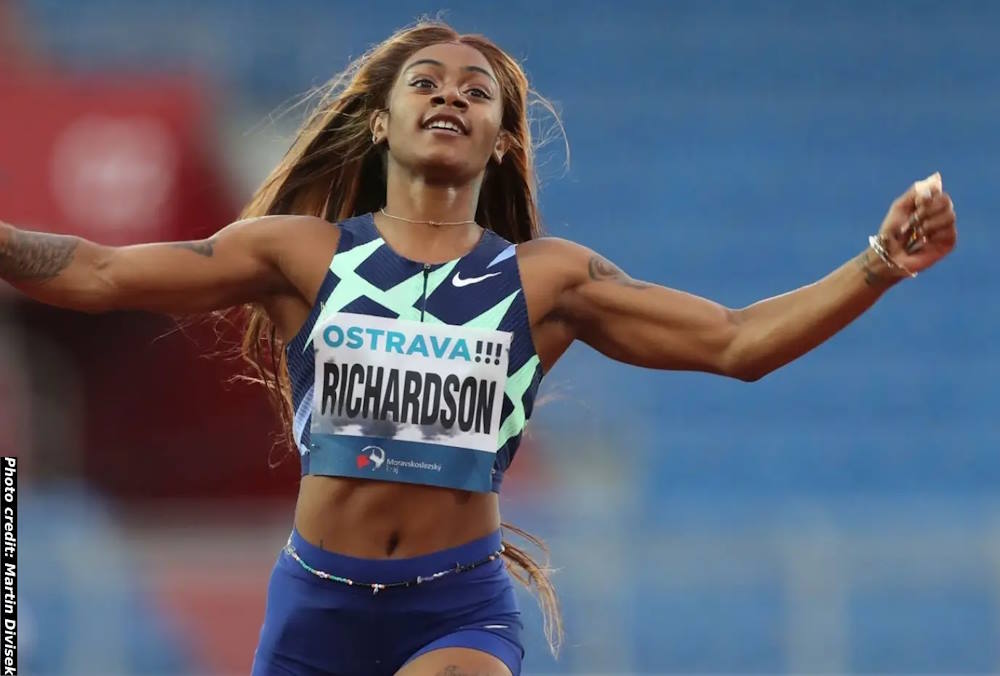NCAA and Marijuana: Rethinking the Athletes’ Banned Drug List
As attitudes towards cannabis shift and legalization efforts continue to gain momentum, the National Collegiate Athletic Association (NCAA) is facing growing scrutiny over its policies on marijuana use among student-athletes.
It’s an issue that came under increased scrutiny after track star Sha’Carri Richardson was banned from competing in the Olympics after testing positive for marijuana use.
Recently, an NCAA panel called for the association to remove cannabis from its banned drug list and testing protocols. The NCAA Committee on Competitive Safeguards and Medical Aspects of Sports said testing should be limited to performance-enhancing drugs. They found that cannabis does not enhance performance.
The committee is also “seeking support from the NCAA Board of Governors to stop testing for cannabis at NCAA championship events while legislative action is considered,” according to a statement from the NCAA.
Rationale Behind the Decision
The decision to consider changes in policy regarding the removal of cannabis from the banned drug list for college athletics was primarily influenced by the findings and discussions at the December 2022 Summit on Cannabinoids in College Athletics, according to the NCAA.
The consensus reached during the summit was that cannabis does not enhance athletic performance and that an effective approach involves promoting harm reduction at the school level. The rationale for the proposed changes includes prioritizing testing for substances that truly provide an unfair advantage by enhancing athletic performance and shifting to an approach with cannabis that is similar to the approach taken with alcohol. They also called for testing methods that better support and enhance efforts to identify problematic cannabis use on campus.
Also, the committee called for educating student-athletes about the health risks associated with contemporary cannabis use and the various methods of consumption. They also recommended providing harm reduction and mitigation strategies to student-athletes who choose to legally consume cannabis.
In addition to the policy and testing modifications, the committee expressed support for the development of a communication and education campaign. This campaign aims to provide guidance to the NCAA membership regarding cannabis, ensuring that athletes, schools, and stakeholders are well-informed about the evolving landscape surrounding cannabis use in collegiate athletics.
Changing Attitudes About Cannabis
Public opinion regarding cannabis has experienced a significant shift in recent years. With numerous states legalizing cannabis for medical and/or recreational use, the stigma surrounding this plant has diminished. Moreover, studies have shed light on the potential medicinal benefits of cannabis, challenging long-held misconceptions.
One of the primary concerns behind the NCAA’s inclusion of cannabis on the banned drug list is that it is rooted in the belief that it may jeopardize the safety of student-athletes, noted NPR. However, critics argue that this reasoning is flawed. NPR noted that many experts agree cannabis is not considered a performance-enhancing drug and that its impact on athletic performance is largely subjective and varies from person to person.
In the past, the NCAA has suspended athletes, stripped them of scholarships, and even barred them from their sports, despite cannabis use occurring outside of competition. These harsh penalties can have long-lasting effects on the academic and athletic careers of these individuals.
With the changing perception of cannabis and the growing body of evidence supporting its medicinal properties, many argue the NCAA’s stance on marijuana is outdated. For the cannabinoid class to be removed from the NCAA list of banned drugs, each of the three NCAA divisional governance bodies would have to introduce and adopt legislation, according to the NCAA statement.




